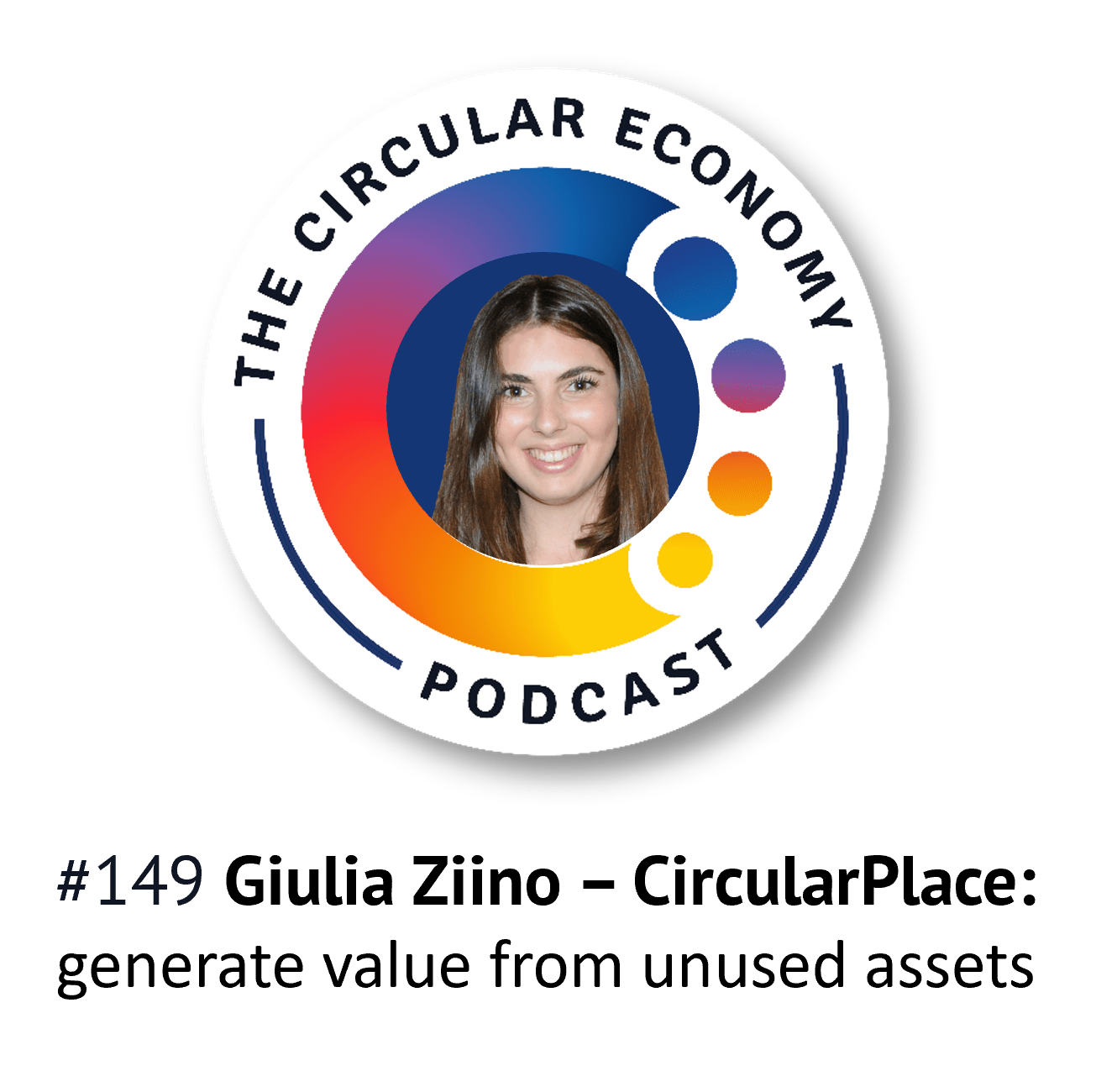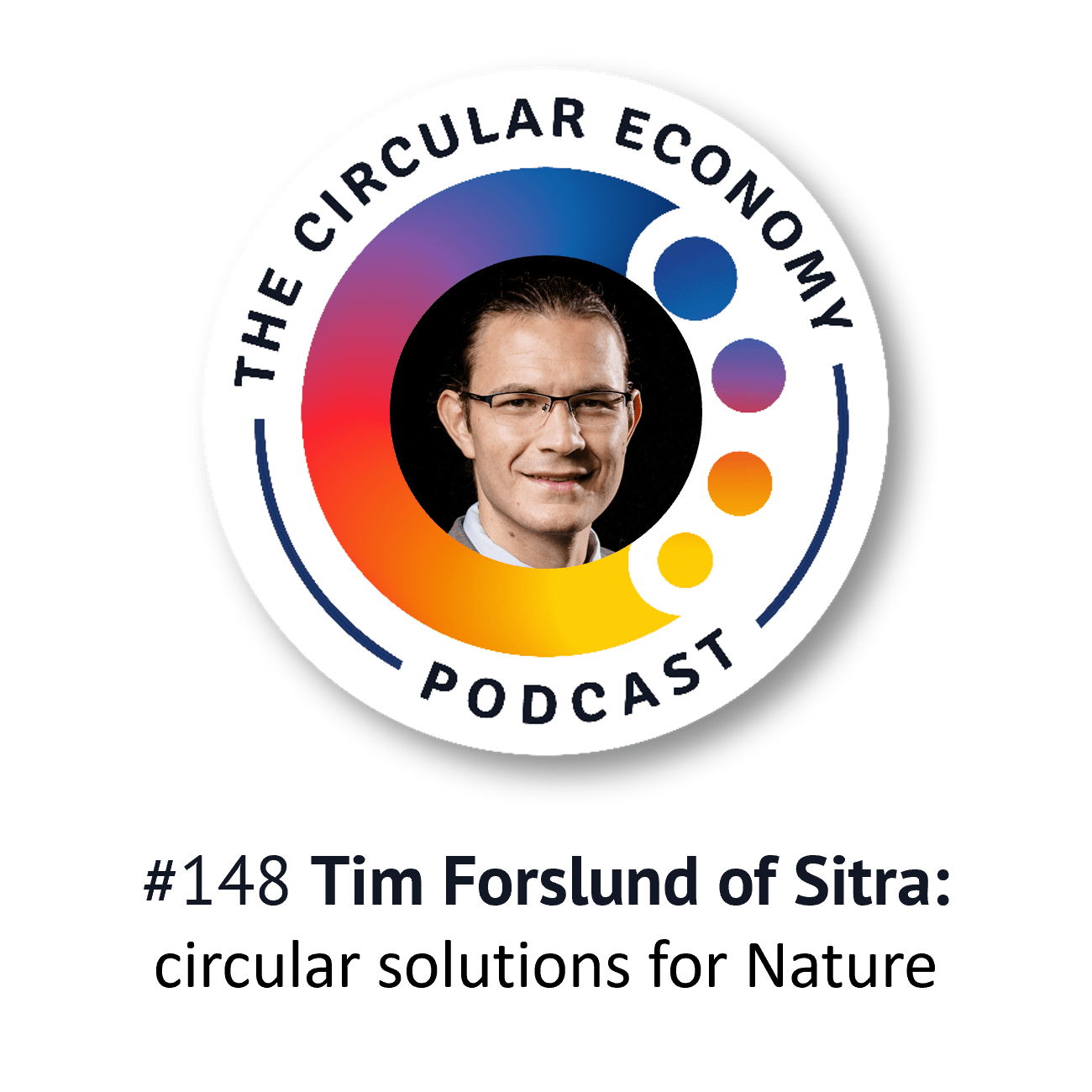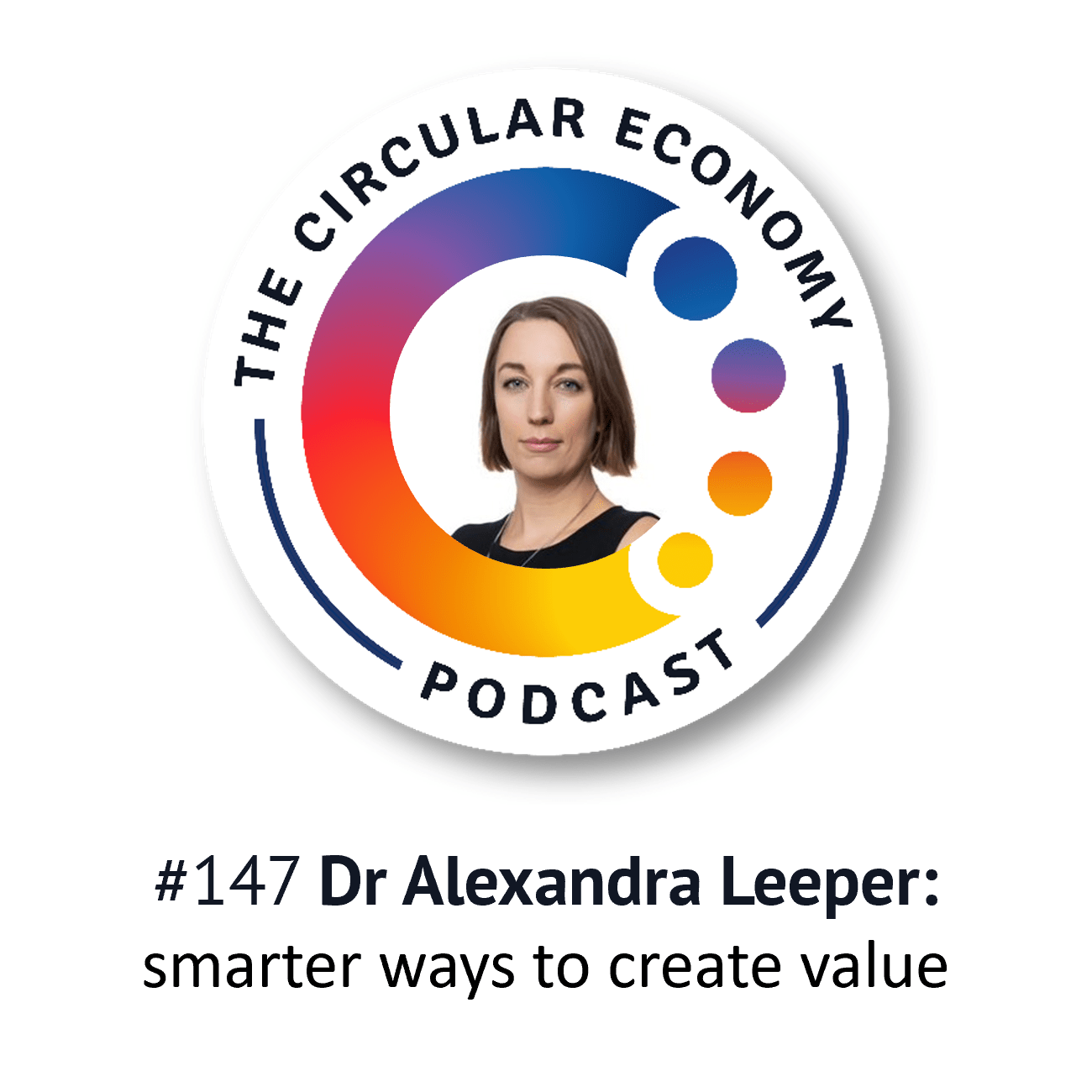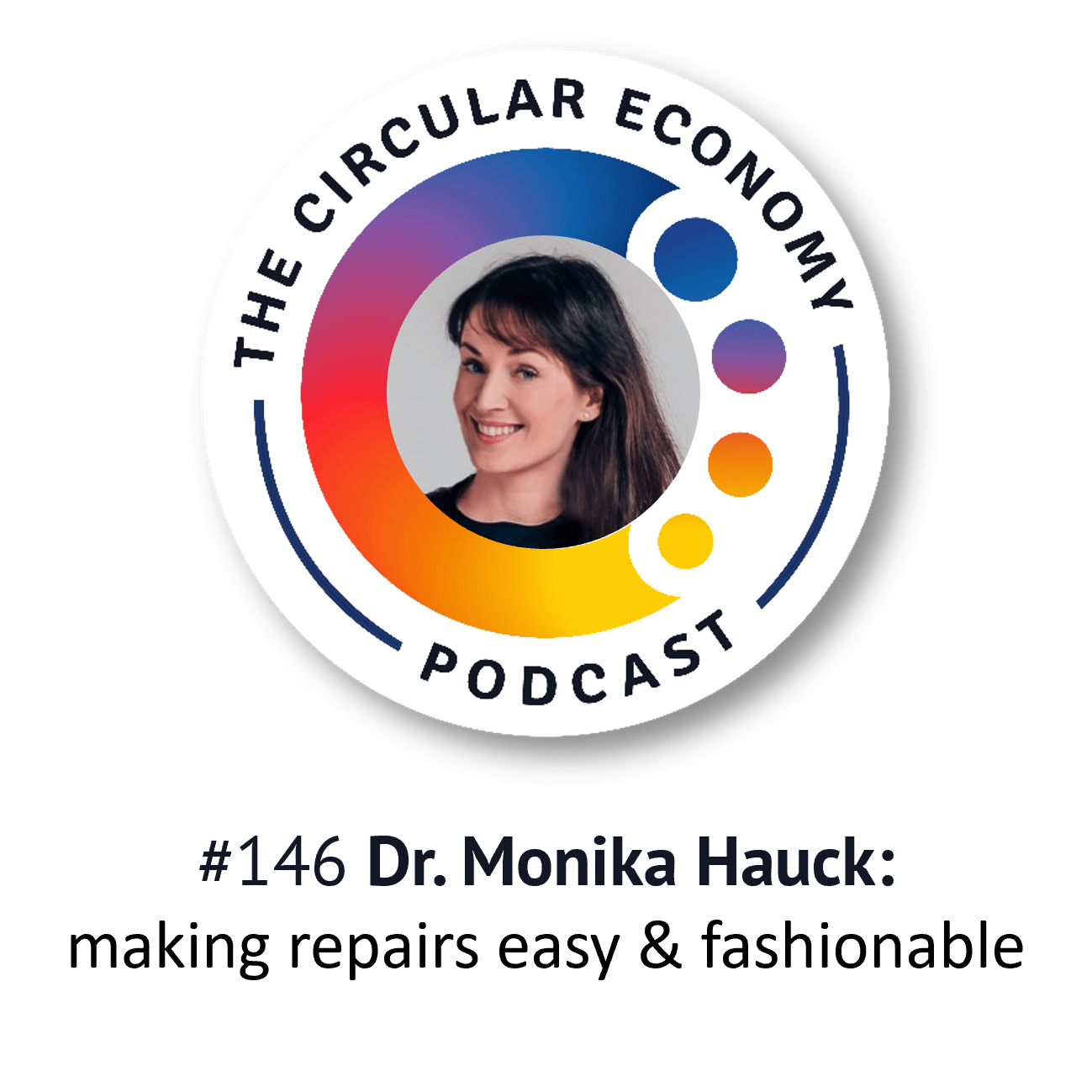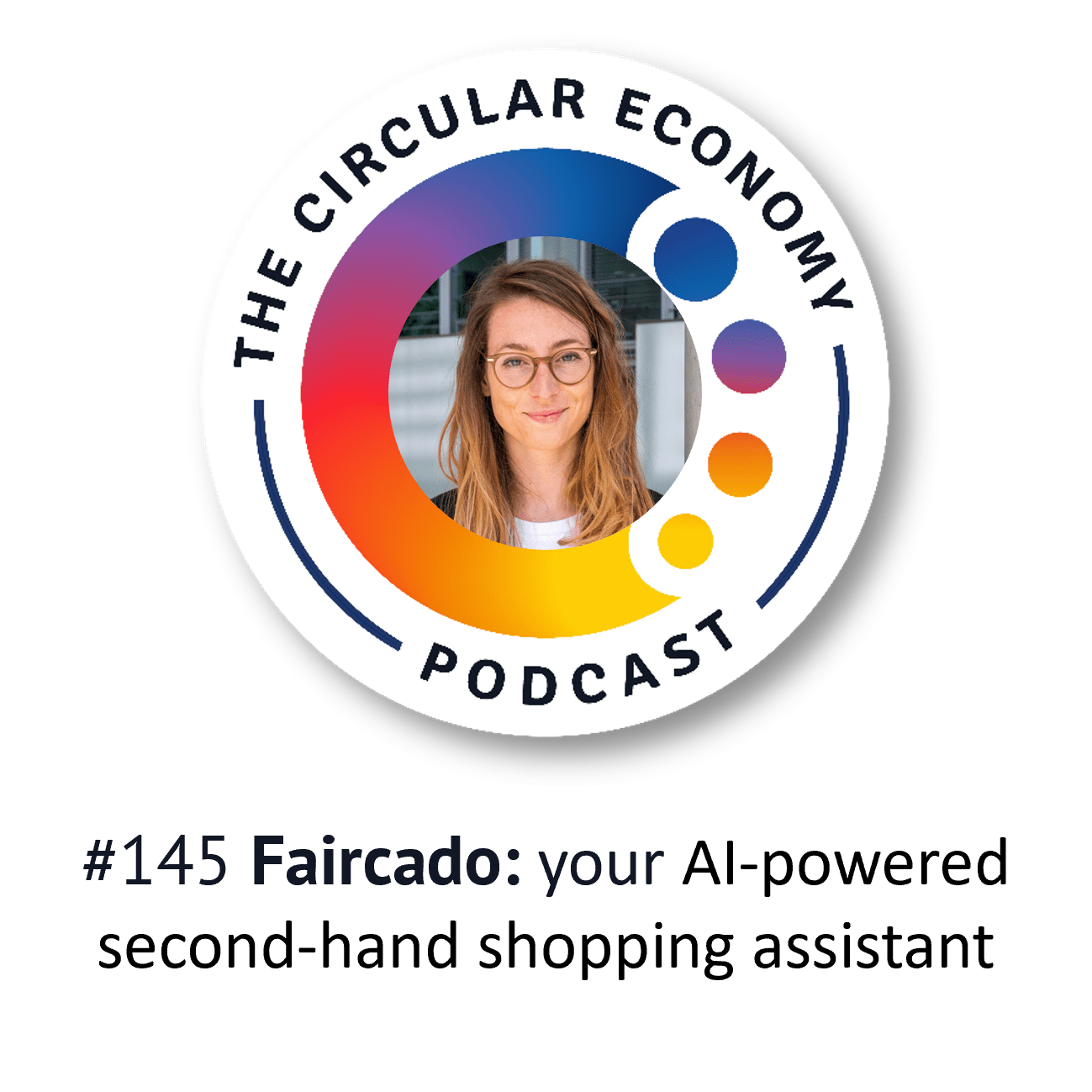Podcast: Play in new window | Download
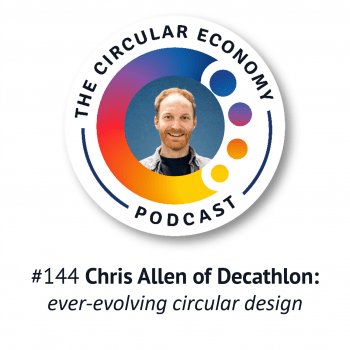
Chris Allen is Sustainability Leader and Head of Circular Business Development at Decathlon UK. You’ve probably heard of Decathlon, which is the world’s largest sporting goods retailer, with over 1,700 stores in more than 70 countries. It’s a family-owned company, founded in 1976, and inspired by the belief that the best sports products should be accessible to everyone.
Chris Allen has 15 Years experience in Decathlon spanning various retail management roles, including several years in Category Management and Head of Outdoor before being appointed to his Sustainability role in 2022. Chris has a degree in Sports Engineering and is an advocate of all things outdoors, and loves being out on his bike or at the local climbing wall.
Decathlon describes itself as specialising in the creation and production of innovative sporting goods designed to delight and move people through the wonders of sport, including cycling, hiking, running, swimming and football.
Decathlon sees its mission as ever-evolving and high-performance design, the best quality at the lowest possible price, and expert advice that customers of all ages, backgrounds and skill levels can access in-store or online, from anywhere, at any time.
Decathlon has an integrated business model, with over twenty in-house brands as well as supplying well-known brands including Asics, Adidas, Garmin, Puma, Quiksilver, Reebok, Salomon, and many others.
In the UK, Decathlon offers a 2-year warranty on its own brand products, has buy-back programme so customers can save money and trade in their old gear. It sells through it’s retail stores and online, and offers a 365-day returns policy, giving customers a whole year to decide if something is right for them.
Chris will talk us through Decathlon’s approach, including how the buy-back, second-life and repair programmes work in practice, and how he’s working with the in-house and external product and design teams to implement a whole-systems approach to sustainability.
International speaker, author and strategic advisor, Catherine Weetman helps people discover why circular, regenerative and fair solutions are better for people, planet – and prosperity.
Catherine’s award-winning book: A Circular Economy Handbook: How to Build a More Resilient, Competitive and Sustainable Business includes lots of practical examples and tips on getting started.
Stay in touch for free insights and updates…
Read on for more on our guest and links to the people, organisations and other resources we mention.
Don’t forget, you can subscribe to the podcast series on iTunes, Google Podcasts, PlayerFM, Spotify, TuneIn, or search for “circular economy” in your favourite podcast app. Stay in touch to get free insights and updates, direct to your inbox…
You can also use our interactive, searchable podcast index to find episodes by sector, by region or by circular strategy. Plus, there is now a regular Circular Economy Podcast newsletter, so you get the latest episode show notes and links delivered to your inbox on Sunday morning, each fortnight. The newsletter includes a link to the episode page on our website, with an audio player. You can subscribe by clicking this link to update your preferences.
Links we mention in the episode:
Links for our guest:
- Chris Allen on LinkedIn – https://www.linkedin.com/in/chrislallen/
- Decathlon UK – https://www.decathlon.co.uk/
- Decathlon UK Insta – https://www.instagram.com/decathlonuk/
- Decathlon Global Transition Plan – https://sustainability.decathlon.com/transition-plan-2020-2026
- Decathlon Global Circular Transition – https://sustainability.decathlon.com/going-circular-transition-towards-a-circular-economy
- No Tent Left Behind Initiative – https://www.decathlon.co.uk/c/htc/no-tent-left-behind_b3be522a-a5f2-497e-a93f-f1a3682cdae1
- Decathlon UK recent press releases – https://decathlon-uk.prezly.com/
More podcasts on these themes:
- 135 Tuomo Laine: unlocking circular business models – Tuomo Laine is CEO & co-founder of Twice Commerce, which provides software to help its clients unlock a range of circular business models https://www.rethinkglobal.info/135-tuomo-laine-unlocking-circular-business-models/
- 139 Peter McCafferty: supporting circular businesses. Peter McCafferty of Zero Waste Scotland’s Circular Economy Business Support Service discusses the fuel and friction of the circular economy https://www.rethinkglobal.info/139-peter-mccafferty-supporting-circular-businesses/
- 132 Re-Action – repairing: from radical to renaissance. Three businesses helping people discover that repairing means caring – Sheffield Clothing Repair, Snowdonia Gear Repair, Vicky Bikes https://www.rethinkglobal.info/132-re-action-repairing-from-radical-to-renaissance/
- 131 Re-Action – Sharing: Serving more people with less stuff. Three startups providing convenient, affordable access to high-quality outdoor gear: Cirkel Supply, Tentshare & KitUp Adventures https://www.rethinkglobal.info/131-re-action-sharing-serving-more-people-with-less-stuff/
- 112 Fiona Dear: Reviving repair and reuse for our tech. Fiona Dear is a Co-Director at The Restart Project, which aims to keep our electronic technology in use for longer through repair and reuse https://www.rethinkglobal.info/112-fiona-dear-reviving-repair-and-reuse-for-our-tech/
Catherine’s work:
- Circular Economy Podcast on LinkedIn: linkedin.com/showcase/circular-economy-podcast/
- Circular Economy Podcast website: circulareconomypodcast.com
- Catherine Weetman on LinkedIn: https://www.linkedin.com/in/catherine-weetman-9419107/
- A Circular Economy Handbook: How to Build a More Resilient, Competitive and Sustainable Business – buy from any good bookseller, or direct from the publisher Kogan Page, which ships worldwide (free shipping to UK and US) https://www.koganpage.com/CircEcon2
- Interactive podcast index https://www.rethinkglobal.info/circular-economy-podcast-index/
- Rethink Global www.rethinkglobal.info
- Sign up to get the podcast player and shownotes for each new episode emailed to your inbox
Guest bio
Chris Allen, DECATHLON UK Sustainability Leader and Head of Circular Business Development. 15 Years experience in Decathlon spanning various retail management roles, several years in Category Management and Head of Outdoor, through to Sustainability. A degree in Sports Engineering and an advocate of all things outdoors; you may bump into him on his bike or at a local climbing wall.
DECATHLON is the world’s largest sporting goods retailer, with over 1,700 stores and 105,000 teammates in more than 70 countries. With its integrated business model, DECATHLON specialises in the creation and production of innovative sporting goods designed to delight and move people through the wonders of sport.
Playlist: getting started with the circular economy…
Want to know more about the what the circular economy really is, and how it can help your business? Here’s a playlist to help you get to grips with the concept, how it creates value, and the common myths (spoiler alert – it’s much more than recycling!)
- #1 What is the circular economy: A quick intro to explain what the circular economy is and why it’s important. We explore how it helps create better products and services, and at the same time helps to make a better world. I break it down into my 5 circular economy components, helping you think about each part of your business.
- #2 The linear economy and your risk checklist: We dig a bit deeper into the way we do business now, the linear economy, and why that’s creating problems for business, society and our living planet. Also, we’ll look at the risks that emerge from those big-picture issues, and how they might affect your organisation.
- #90 Does circular mean it’s sustainable? Catherine Weetman is worried that companies are using circular economy solutions to grow their business (and their footprints).
- #101 Circular is better for people, planet and profit! How three simple strategies can help you get started with circular and regenerative solutions that are better for people, planet and profit.
- #120 Priorities are changing: people find life is better when we care for and share things – circular economy strategies make that better for business, too.
And here’s Catherine’s guide: What is the circular economy?
Want to dig deeper?
Why not buy Catherine’s award-winning book, A Circular Economy Handbook: How to Build a More Resilient, Competitive and Sustainable Business. This comprehensive guide uses a bottom-up, practical approach, and includes hundreds of real examples from around the world, to help you really ‘get’ the circular economy. Even better, you’ll be inspired with ideas to make your own business more competitive, resilient and sustainable.
Please let us know what you think of the podcast – and we’d love it if you could leave us a review on iTunes, or wherever you find your podcasts. Or send us an email…
Please let us know what you think of the podcast – and we’d love it if you could leave us a review on iTunes, or wherever you find your podcasts. Or send us an email…
Podcast music
Thanks to Belinda O’Hooley and Heidi Tidow, otherwise known as the brilliant, inventive and generous folk duo, O’Hooley & Tidow for allowing me to use the instrumentals from the live version of Summat’s Brewin’ as music for the podcast. You can find the whole track (inspired by the Copper Family song “Oh Good Ale”) on their album, also called Summat’s Brewin’. Or, follow them on Twitter.
